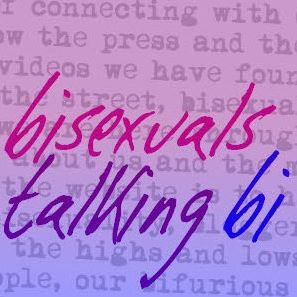Posted inBlogging coming out My Life social media
Why I’m not anonymous

Sue George is my real name, and it never occurred to use a pseudonym on this blog. But maybe it should have.
I have a certain (small) profile as a writer on bisexuality, and wanted to continue that here. I am also a professional journalist, not (sadly) on bisexuality, but there is some overlap between the two. For instance, this blog is mentioned on my LinkedIn profile, and also on Twitter, which I use partly for work.
I thought when I started – correctly, I’m sure – that people would be more likely to read ideas and theories about bisexuality, and take them seriously, if a named individual was writing them.
But the fact that I write this as me – and people often find this blog by looking for “Sue George” – has certain ramifications. In particular, it curtails what I write about and how I write it.
You’ll search for a long time on this site before you find out much about me that shouldn’t be completely in the public domain. There’s very little information about my own relationships, and nothing about my own sexual or romantic life after about 1980. I said early on that I wasn’t going to include anything I didn’t want my family or my employer to read. Now I have no employer as such – being freelance/self-employed – that is even more important.
The downsides of being me
But recently I have been thinking about all the things I can’t write about on here, and wish I could.
I can’t write about sex. Not just my sexual life, but anyone’s. Someone who might give me work might look at it and shudder. Human rights, identity, history etc – I would have absolutely no problem arguing my right to do that, and no one has ever asked me to. It also means that I have to turn down those several people who have emailed me asking to guest post on the subject.
I can’t write much about my own life. The people involved wouldn’t like it, and have told me so on many occasions. “Don’t you dare write about me” has been several lovers’ parting shots (and not in recent years, either).
I can’t include some of my opinions which I have formed as a result of the above.
When it comes down to it, I am quite a private person and it never fails to astonish me what some people are happy to share with THE ENTIRE WORLD.
The positive side of anonymous blogging
I know that a lot of people who read this blog, and blog themselves, post under pseudonyms. They want to tell the word about their lives honestly, which they just couldn’t do otherwise for obvious reasons.
In addition, many of the blogs that I have learned from have been written under pseudonyms. The writers are free to cover all kinds of controversial subjects that they just could not have done under their own names. It frees them.
Say, for instance, you are a social worker who used to be a drug addict, or a single mother who is a sex worker, or you are in a long-term clandestine relationship, you might well have valuable insights that you wouldn’t feel happy sharing with the world under your real name. I’d certainly want to read those insights, and I’m sure others would too.
And the negatives
Of course, anonymous blogging – and particularly commenting - can and often does free a writer to be vicious, nasty and generally unpleasant. As a result, many people have called for “no more anonymity on the internet”.
Now that, of course, would make the internet a much nicer and politer place. But it would also mean that readers would be unable to learn about the otherwise hidden sides of life, something that can be really valuable for both readers and writers.
And that’s particularly so for bi people, many of whom have insights they don’t want their family and employers to know they have!
